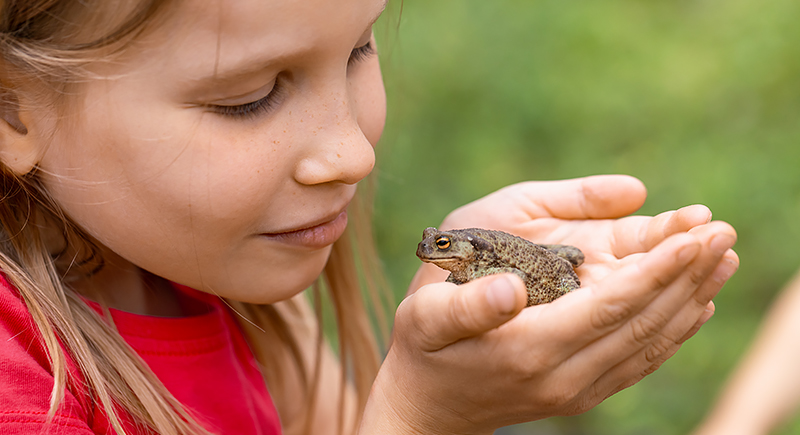15 Lessons Parents Taught Us That Turned Out to Be Completely Wrong
As kids, we took every piece of advice from our parents as gospel. From lessons on manners to the “rules” about how to stay healthy, parents had us covered. However, as we grew older (and got a bit wiser), we started realizing that some of their well-meaning advice wasn’t entirely accurate. Turns out, some of those age-old lessons didn’t quite stand the test of time—or science. Let’s revisit 15 common parental myths that have since been busted.
Sitting Too Close to the TV Will Ruin Your Eyes

Credit: iStockphoto
How many times did you hear the stern warning: “Don’t sit so close to the TV, you’ll ruin your eyes!” While it’s true that sitting too close can lead to temporary eye strain, it won’t cause lasting damage. Modern TVs emit much less radiation than their older counterparts, so no need to worry about permanent eye harm. Still, a little screen break every now and then wouldn’t hurt!
Cracking Your Knuckles Will Give You Arthritis

Credit: iStockphoto
For years, the sound of cracking knuckles was met with a frown and a quick “stop doing that, it’ll give you arthritis!” Turns out, this myth doesn’t hold water. There’s no proven link between knuckle cracking and arthritis, though excessive cracking might weaken grip strength over time. So, while it’s not the healthiest habit, it’s not something to lose sleep over.
Swallowing Gum Means It Stays in Your Stomach for Seven Years

Credit: freepik
It’s the classic mom panic: you swallow gum, and you’re told it’ll stay in your stomach for seven years. Fortunately, this is just a myth. Gum passes through your digestive system like any other food. Sure, it’s not the most ideal choice, but it won’t become your body’s long-term resident.
Vaccines Cause Autism

Credit: freepik
This harmful myth began from a single study that was later discredited and debunked. Decades of research confirm that vaccines are not only safe, but they’re also essential in preventing severe diseases. While the myth caused unnecessary fear in many, the truth is clear—vaccines save lives, period.
Going Outside with Wet Hair Will Make You Sick

Credit: freepik
Who hasn’t heard this one? “Don’t go outside with wet hair, you’ll catch a cold!” The truth is, viruses, not cold air or damp hair, are what cause colds. While being cold can stress your immune system a little, you won’t catch the sniffles just because you’re a bit damp. The key is to stay warm and avoid germs.
Carrots Will Give You Super Night Vision

Credit: iStockphoto
As kids, we were told carrots would help us see in the dark, turning us into miniature superheroes. While carrots are great for your eyes, thanks to their vitamin A content, they won’t transform you into a nocturnal creature. This myth came from World War II propaganda about British pilots, not from any real scientific fact.
Sugar Makes Kids Hyper

Credit: freepik
The classic party line: “No candy before bed, it’ll make you too hyper!” Despite what we’ve been told, sugar doesn’t directly cause hyperactivity. Numerous studies have shown no connection between sugar and hyperactive behavior. It’s more likely the excitement of a party or special event that leads to kids bouncing off the walls, not the sugar itself.
Spanking Teaches Discipline

Credit: iStockphoto
For generations, parents believed that spanking was the best way to teach kids right from wrong. Today, research tells us that physical punishment tends to lead to more behavioral problems. Positive reinforcement, clear communication, and setting firm boundaries are now recognized as far more effective—and gentler—ways to promote good behavior.
Reading in Dim Light Will Damage Your Eyes

Credit: freepik
We’ve all been scolded for reading in dim light, but turns out, it’s not as big a deal as we once thought. While reading in low light might make your eyes feel tired, it doesn’t cause lasting damage. The strain is temporary, and it goes away after a short break. So, if you love reading at night, just make sure to blink often and rest those eyes!
We Only Use 10% of Our Brains

Credit: freepik
This myth has been popularized by Hollywood, but it’s far from true. In reality, we use nearly every part of our brains, even when we’re sleeping! Brain scans show activity in nearly all areas of the brain, disproving the idea that there’s some untapped potential lying dormant within us. It’s a fun thought, but science says we’re already using our brains to their fullest extent.
Babies Should Be Left to Cry It Out

Credit: freepik
The “cry it out” method was once considered an effective way to teach babies independence. However, recent studies suggest that responding to a baby’s cries actually strengthens their emotional security and trust. Meeting their needs helps them grow into confident, emotionally secure adults. So, this method has gone the way of the dinosaurs.
Goldfish Have a Three-Second Memory

Credit: iStockphoto
Goldfish may have earned a bad reputation for their supposed short-term memory, but this myth is far from accurate. In reality, goldfish can remember things for months and can even learn to recognize feeding times. So, while they may not ace a memory test, they’re smarter than most of us think!
Shaving Makes Hair Grow Back Thicker

Credit: freepik
It’s a common belief: shaving makes your hair grow back thicker and coarser. But the truth is, shaving doesn’t change the thickness or growth rate of your hair. What you’re seeing is just the blunt tip of the hair as it grows back, which can make it appear darker and coarser. So, no need to fear the razor!
Eating Before Swimming Causes Cramps

Credit: freepik
For years, we were told to wait 30 minutes after eating before hitting the pool. But, in reality, there’s no solid evidence supporting this claim. You can swim comfortably after a meal, as long as you’re not feeling too full or sluggish. Just listen to your body and get in the water when you feel ready.
Touching Frogs or Toads Gives You Warts

Credit: iStockphoto
This myth has been circulating for generations, thanks to the bumpy, wart-like appearance of frogs and toads. However, warts are caused by the human papillomavirus (HPV), not by amphibians. So while touching these creatures might give you a little fright, it won’t give you warts.